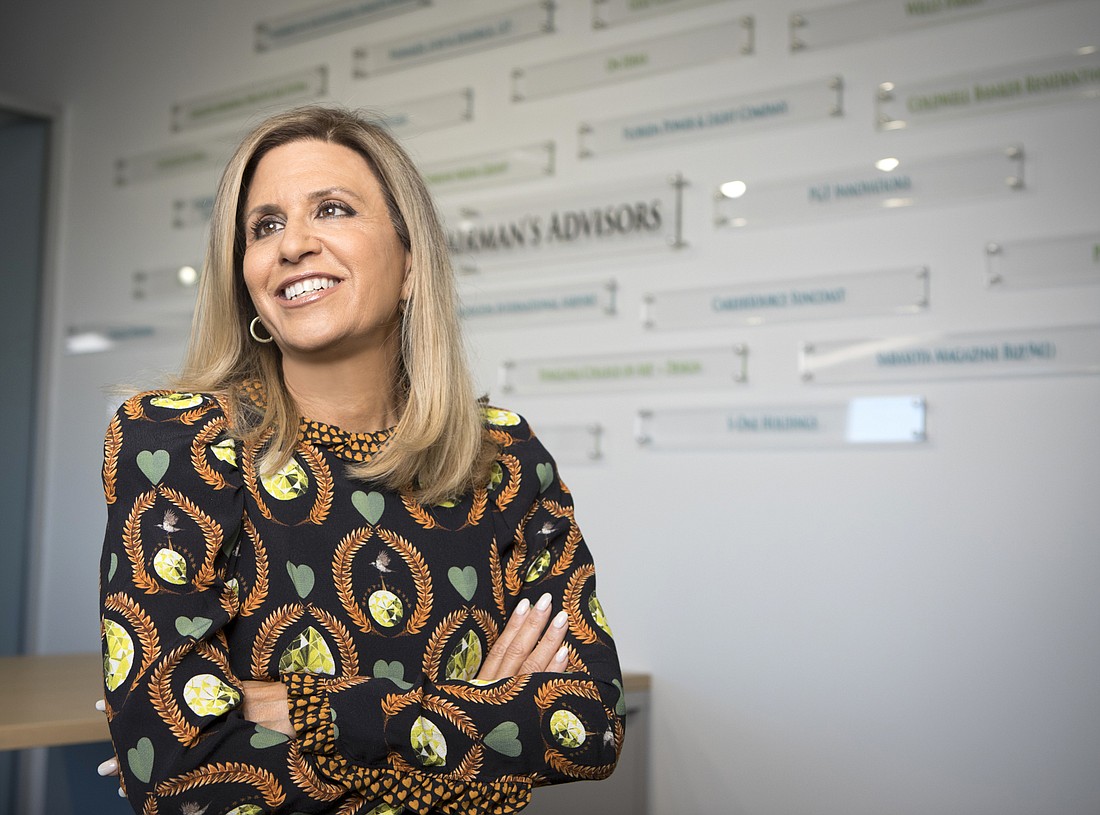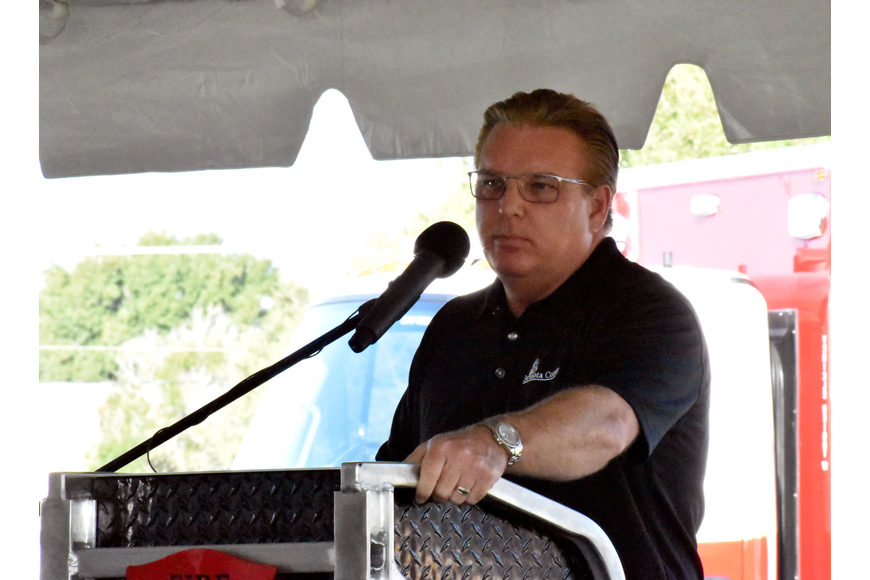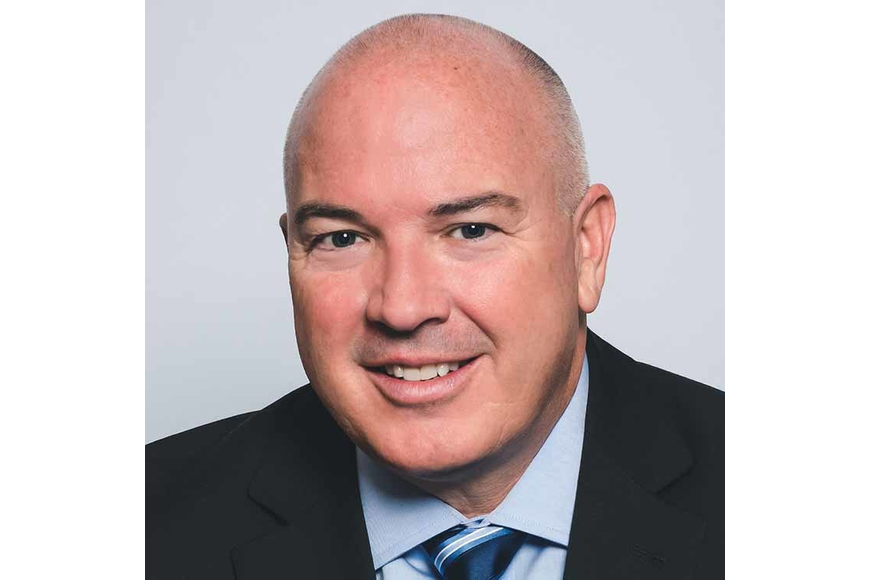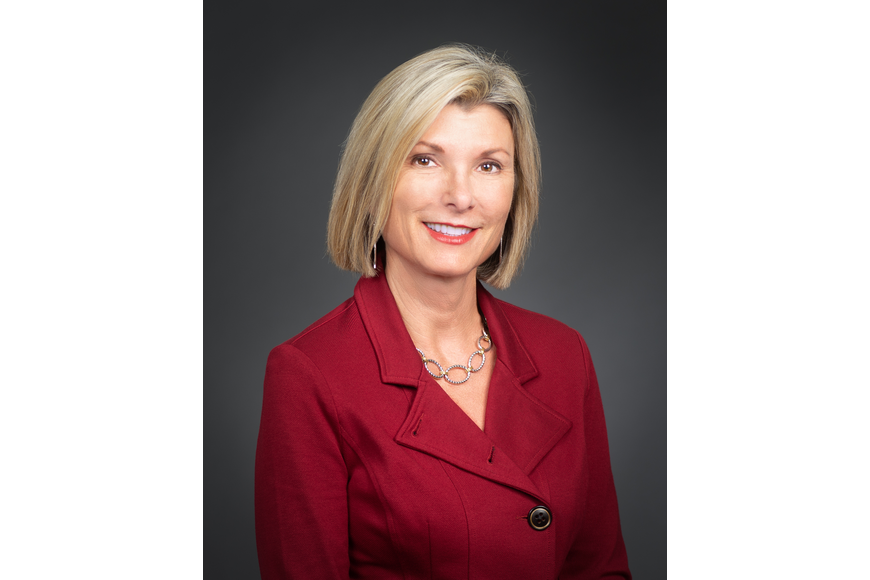- July 26, 2024
-
-
Loading

Loading

The future of the Sarasota County Economic Development Corp. looked bleak in June.
Some two months later, with a new CEO leading the way — one of the more well-known leaders in the Sarasota-Bradenton business community over the past 15 years — the possibilities, if not downright cheery, are, at least, less bleak.
In June, the Sarasota County Commission, with a 3-2 vote, approved a proposal to begin phasing out the county’s local business tax and redirect the Economic Development Corp.’s existing reserves to the county’s general fund budget. While not killing the EDC's entire budget, it was a shrewd move and one few others in the insular economic development sector had heard of a county doing before in Florida.

The defunding proposal kicks in at the end of 2022, starting with a 33% drop in county-based funding. By 2024 the county, under the proposal, will zero out the contribution, returning about $5.96 million to the county's general fund. Some $1 million would be left for future EDC incentive opportunities. In fiscal year 2021, the EDC’s $1.7 million budget included $1.07 million in public funding, with the other portion coming from private sources.
The EDC's new CEO, former FCCI Insurance Group Executive Vice President and Chief Administrative Officer Lisa Krouse and her team, including Erin Silk, recently promoted to vice president of business development services, now have a clear-eyed yet complicated task in front of them: help restore the EDC's status, both locally and with commissioners, and regionally and nationally with site selection consultants who often hold the keys to where companies move to and from.
Notably, Krouse and her team are also tasked with proving to commissioners the EDC can produce a strong return on investment and can be trusted as the go-to place to both lure out of town businesses and help the ones already here prosper.
The EDC's current crisis can be traced Sarasota County Commissioner Mike Moran, who brought forth the defunding proposal.
“On repeated occasions, the Board of County Commissioners has asked for measurable accountability proving a return on the taxpayers money,” he says in an email to the Business Observer, after declining an official interview request. “The lack of direct connection between taxpayer funds and measurable results led to the elimination of the local business tax.”
This decision wasn’t made overnight, Moran noted previously at a June board meeting. It’s a decision, instead, that began forming around five years ago when Mark Huey was president and CEO of the EDC. Also, the ruling on funding cuts isn't quite permanent — if metrics and results change at the EDC. "Our board made it clear that if the EDC can demonstrate a measurable return on investment to the taxpayers of Sarasota County, we would reconsider the funding," Moran says.
The EDC was established as an independent agency in 2004 with the goal of sustaining and growing businesses in Sarasota County. For a time, it operated under the Sarasota Chamber of Commerce. However, Moran says in the past five years, EDC leaders have failed to provide metrics that demonstrate the success of its programs.
In December 2019, when Huey announced he would be stepping down, commissioners questioned him on the EDC’s return on investment of county funds in terms of lasting, high-paid jobs through the agency’s efforts. While the pandemic changed the focus of most EDCs in Florida to triage for local businesses, not necessarily out-of-town business recruitment, the situation in Sarasota — both the long time to get a permanent CEO and the funding issue — could have a lasting impact.
Pasco Economic Development Council President and CEO Bill Cronin, for one, says one potential issue is whether state officials, through the Department of Economic Opportunity — Florida's EDC — will continue identifying Sarasota as a contact for economic development leads. “It has the potential to get messy,” he says if the state doesn’t view the county as the primary contact anymore.
Additionally, Cronin says businesses may question the strained relationship between the EDC and the county, which might lead those businesses to plant their roots elsewhere. “The county’s support is important in terms of new businesses seeing this strained relationship,” he says.
New role
The EDC was on the cusp of finding a replacement for Huey, and then the pandemic hit. So the EDC board paused the search. The thinking was to not bring in someone new, especially someone unfamiliar with Sarasota, during that uncertain time. “It would have been very difficult to focus on community and business needs and also be there during the crisis and uncertainty,” Krouse says.

Former Longboat Key town manager Dave Bullock stepped into the interim position. Bullock wasn’t expecting to stay in the position as long as he did, but he guided the organization through the bulk of the pandemic. In June the board, after an extensive national search, offered the job to a candidate from Illinois. That candidate ultimately backed out of the job, a few weeks after the commission vote. Krouse was named interim CEO in July. A month later she became the regular CEO, dropping the interim title. “Because I had been the interim, it just made sense,” Krouse says of her new position.
An attorney, Krouse is a past chair of the Greater Sarasota Chamber of Commerce. She's also a board member at Lakewood Ranch-based FCCI, one of the largest employers in the region. As CEO of the EDC, Krouse will continue to serve on the boards of the Gulf Coast Community Foundation and FCCI.
The challenge and position resonates well with Krouse. When the EDC was initially formed, it had common investors who believed in the purpose, she says. And she plans to do whatever it takes to sustain the organization. “The community and board trusted the fact that I would be looking for the best thing for this organization,” she says.
In a follow-up email, Krouse says, "I expect to be in the CEO role for as long as is needed for the organization to set its course, gain momentum and rebuild important relationships."
Krouse adds that part of her role will be to help guide a new task force analyzing the legal and organizational structure of the EDC — specifically “making sure they can move with a sense of urgency."
The commissioners have hinted at an itemized list of measurable goals for the EDC to achieve in the next year to regain funding. One of the upfront goals the commission has for the EDC is a shift in focus.
“Consultants, past boards, the business community, me and my fellow commissioners have all
asked the EDC to shift its focus to attracting and retaining “workforce,” Moran says in an email. “In the past, there was a fundamental difference of opinion on this matter.”
Krouse is already looking into the that. After establishing the task force, she’s going to move on to coordinate the talent front in Sarasota by adding a creative sector to appeal to young workers. “We want to attract them to stay in the area,” she says of local students. Workforce retention of younger employees in insurance — an acute challenge in the graying industry — was something Krouse helped lead at FCCI.
Additionally, Krouse is looking to work on investor and community relations. She plans to lead the EDC to continue supporting businesses interested in moving to Sarasota while also helping established businesses expand — the yin and yang of most economic development agencies.
To some, that task will be more difficult than it might sound. "If you walked down the street and asked 100 business owners, “What has the EDC done to support your business?” I feel confident you would struggle to find a straight answer," Moran says. "I am hopeful the EDC will listen closely to the business community of Sarasota County and give them what they need and want to grow their companies and provide career opportunities for (the) residents."
Krouse generally agrees with the path commissioners have set. “We have to express what our goals are,” she says. “I don’t think what they asked for was unfair.”
“They’re public servants and we’re a public/private organization,” Krouse adds. “They have an important voice and we need to listen and respond accordingly.”
Have a plan
While Krouse and her team are in repair mode, there are examples of other EDCs in the region that could serve as study guides, both in terms of funding models and generating a sustainable ROI.
Up the road from the Sarasota EDC, the Bradenton Area EDC, for example, has a reputation in the local business community as having the right balance between wooing new business to town and helping established ones prosper. That starts, says president and CEO Sharon Hillstrom, with a partnership mindset with its commissioners. "We are extremely collaborative in the work we do,” she says.

The Bradenton Area EDC implemented a strategic plan in 2016 and it was such a success, Hillstrom says, it's getting ready to launch a 2.0 version of the plan in October. The plan is focused around workforce development, education and quality of life within Bradenton and Manatee County. The plan has also helped the organization stay on top of reporting metrics to investors and the community. “We take that very seriously,” she says.
The organization also takes seriously its mission to with local companies — businesses that help the organization in recruiting other businesses. “We have strong relationships with our established businesses,” she says. “We recognize their importance and continue to invest in them. Our work is centered around recruiting businesses to the area and supporting businesses that are already here.”
The Pasco Economic Development Council, meanwhile, has 12 employees with three separate funding streams: general revenue from county to recruit and market the county, the private sector and a one-cent sales tax that goes toward economic development.
The most important thing, says Cronin, the president and CEO, is keeping funding separate so the community is able to “follow the dollar.” Each funding stream is responsible for certain activities or programs.
The Pasco EDC stays successful by focusing on five areas: marketing, building inventory, workforce, business growth and leadership. The organization also provides the county commissioners with a quarterly update which gives them the opportunity to ask questions.
Most important of all, an EDC isn’t there to ask for handouts, Cronin says. “That’s the attitude that needs to be embraced,” he says.
Cronin says despite the turmoil, this is a good opportunity for the Sarasota County EDC. “It’s a good chance, he says, "for them to step back and see what they want to be in 20 years."